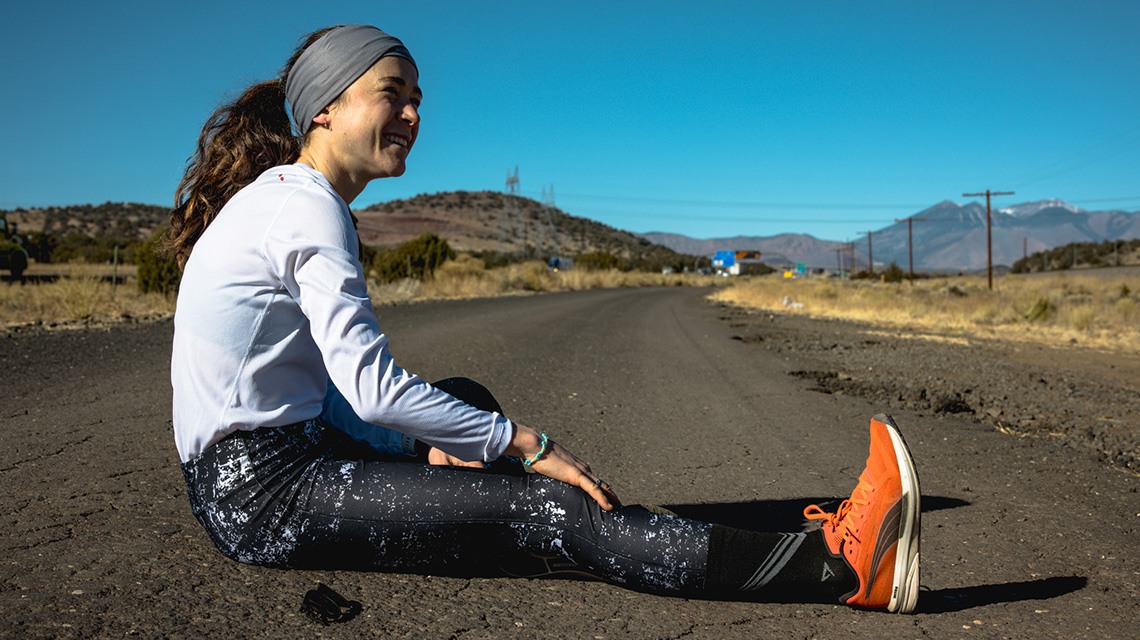
Recovery 101
6 points to a quick recovery
January 11, 20236 points to a quick recovery
January 11, 2023No matter how hard you train, without sufficient recovery there will be very little development in performance. It’s tempting to overtrain in a world where we are given kudos for pushing the limits, however this kind of training has a burnout point and it’s harder to come back from than you would think.
If you want to improve your cardiovascular fitness and/or strength, respect the process and build time into each day and week for adequate recovery. Building in recovery time means you can train smarter, not harder and reap the reward for all your hard work. Tick off these 6 points below to ensure a speedy recovery.
1
Quality sleep
If you can’t make time for anything else, make time for sleep. Without sleep your muscles cannot recover from the stress load imposed during exercise. Aim for 7-10 hours of sleep with the focus on sleep quality. Good quality sleep is found to play a part in improving reaction times, motor function, motivation, focus, stress regulation, muscle tissue recovery, memory, and fuel utilisation. Therefore, not surprisingly, a lack of sleep increases the risk of injury, reduces immune function, increases stress, and promotes weight gain.
2
Hydration
Hydration plays an important role in muscle repair and recovery. Studies found that many athletes don’t drink enough fluids during or after training. In fact, inadequate fluids on a single day can result in impaired performance for up to 2-3 days. It is recommended that an average adult drinks 2-3 liters of water per day, allowing more for strenuous training sessions and heat. Water helps to rebuild damaged muscle through a process called protein synthesis therefore dehydration prolongs this process. Muscle soreness typically lasting 12-24 hours, known as Delayed Onset of Muscle Soreness (DOMS), is also found to be increased in severity and duration when dehydrated.
3
Pre/post exercise fuel
What you eat before and after your training significantly affects not only the intensity of the session, but also the training effect that is gained afterwards. An intense training session, poorly fuelled, can lead to fatigue during and after the session, injury, and poor muscle adaptation. Refuelling after a training session is important to replenish energy stores, increase protein synthesis and reduce protein breakdown, essentially, repairing any damage and rebuilding muscle tissue. Eat plenty of fruits and vegetables, good fats, protein, and complex carbohydrates.
4
Active recovery
Rest days don’t have to be completely sedentary. Light activities like walking, easy swimming, yin yoga and mobility sessions, for example, help to reduce DOMS through the removal of waste products post-exercise, improving range of motion and helping with motor control. Keeping active on a rest day is thought to even have a positive psychological effect through the release of endorphins elevating mood and promoting happiness.
Research has found that active recovery helps to reduce an athlete’s overall recovery time and improve future performance.
5
Hot/Cold therapy
Ice baths, saunas and hot baths can all be used to promote recovery as effective use of temperature variation has been shown to reduce recovery time by assisting in muscle repair.
6
Massage / foam rolling
Massage and foam rolling may be useful to increase blood flow to the muscle relieving tightness, tension, and inflammation. This may help to improve range of movement and mobility while helping to reduce muscle pain and can be especially useful when returning to exercise post-injury.
Make sure to avoid overtraining
If you are working towards a meaningful goal, it’s helpful to have a plan to make sure you don’t fall into the trap of overtraining. Insufficient recovery time between sessions results in poor muscle adaptation while increasing the risk of injury and burnout. Incorporate tactical rest days after races and strenuous training sessions and keep an eye out for warning signs of overtraining.
Examples of overtraining symptoms:
- Unusual muscle soreness and muscle “heaviness” despite rest days
- Slow recovery from sessions
- Becoming highly susceptible to illness
- General fatigue, lethargy, and reduced motivation
- Increased feeling of stress, depression, and anger
- Poor-quality sleep
- Plateaus in performance
- Irregular menstrual cycles
- Weight loss


